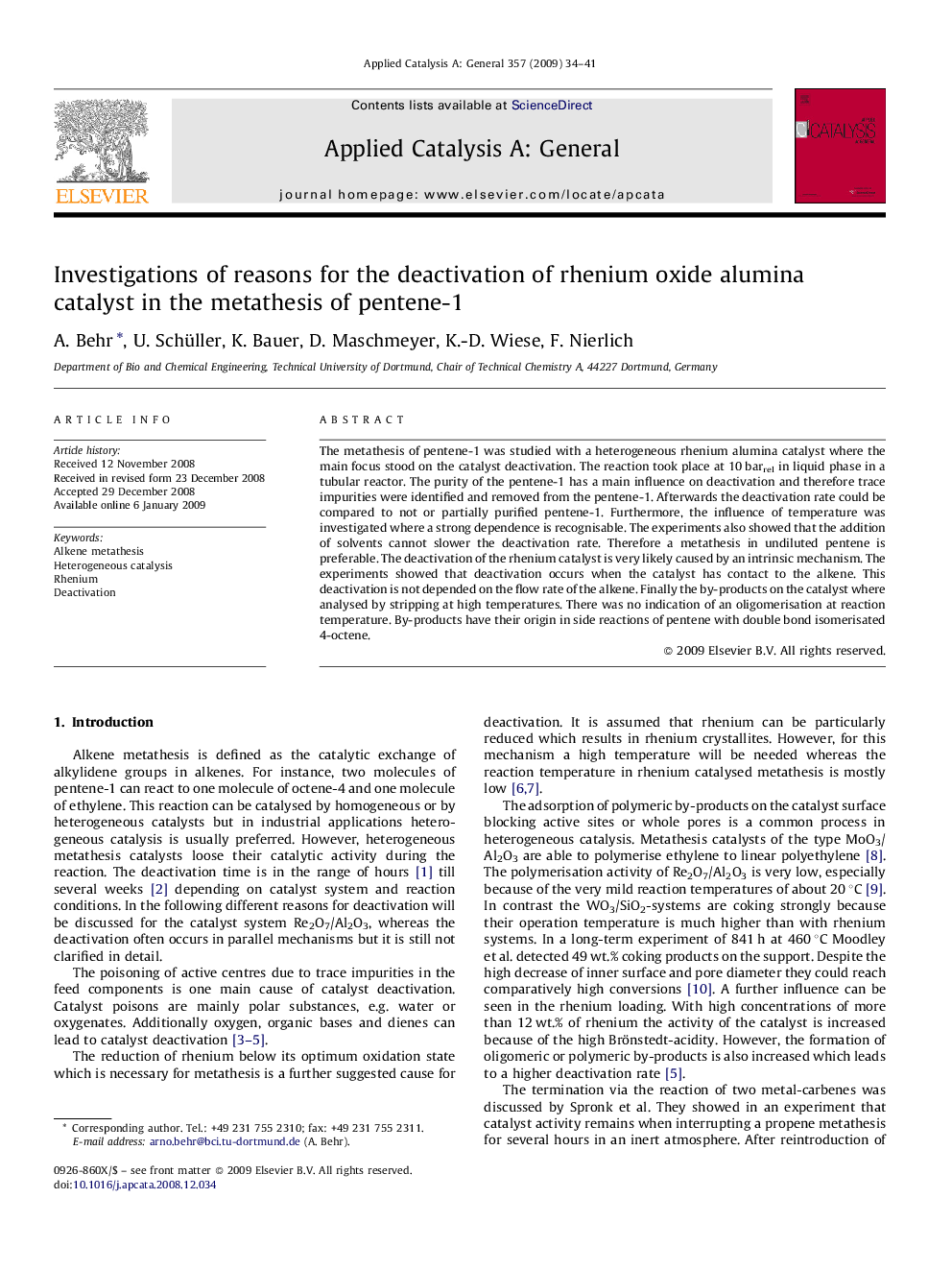| Article ID | Journal | Published Year | Pages | File Type |
|---|---|---|---|---|
| 42412 | Applied Catalysis A: General | 2009 | 8 Pages |
The metathesis of pentene-1 was studied with a heterogeneous rhenium alumina catalyst where the main focus stood on the catalyst deactivation. The reaction took place at 10 barrel in liquid phase in a tubular reactor. The purity of the pentene-1 has a main influence on deactivation and therefore trace impurities were identified and removed from the pentene-1. Afterwards the deactivation rate could be compared to not or partially purified pentene-1. Furthermore, the influence of temperature was investigated where a strong dependence is recognisable. The experiments also showed that the addition of solvents cannot slower the deactivation rate. Therefore a metathesis in undiluted pentene is preferable. The deactivation of the rhenium catalyst is very likely caused by an intrinsic mechanism. The experiments showed that deactivation occurs when the catalyst has contact to the alkene. This deactivation is not depended on the flow rate of the alkene. Finally the by-products on the catalyst where analysed by stripping at high temperatures. There was no indication of an oligomerisation at reaction temperature. By-products have their origin in side reactions of pentene with double bond isomerisated 4-octene.
Graphical abstractThe metathesis of pentene-1 was studied with a heterogeneous rhenium alumina catalyst where the main focus stood on the catalyst deactivation.The purity of the pentene-1 has a main influence on deactivation and therefore trace impurities were identified and removed from the pentene-1. Afterwards the deactivation rate could be compared to not or partially purified pentene-1. Furthermore, the influence of temperature, solvents, vacuum and the alkene itself on the deactivation were investigated in detail.Figure optionsDownload full-size imageDownload as PowerPoint slide
